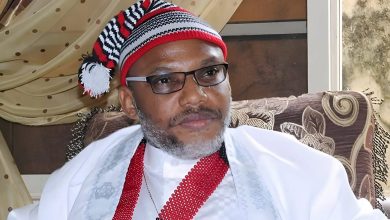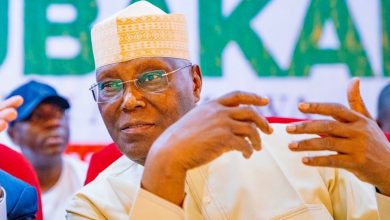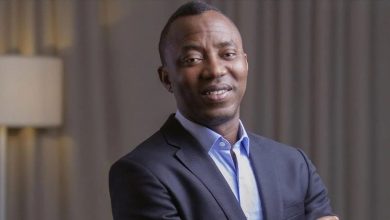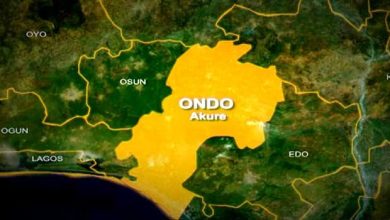Mass Protest Scheduled for June 12 Over Worsening Economy Under Tinubu Administration
The #EndBadGovernance group plans mass protests on June 12, citing growing hardship under President Tinubu’s administration.
They say fuel subsidy removal and naira devaluation have worsened poverty, urging Nigerians to demand economic justice and better leadership.
The #EndBadGovernance movement has announced plans to stage nationwide protests across Nigeria on Wednesday, June 12, 2025, to coincide with the country’s Democracy Day celebration. The planned demonstrations aim to spotlight what the group describes as growing economic distress and widespread dissatisfaction with President Bola Ahmed Tinubu’s administration.
Democracy Day in Nigeria marks the annulled June 12, 1993, presidential election, widely considered to be the fairest in the nation’s history. The vote, which was won by late business mogul and philanthropist Chief Moshood Kashimawo Abiola, was annulled by the military regime of General Ibrahim Babangida, triggering decades of civil agitation and political reform. In 2018, the federal government under former President Muhammadu Buhari officially declared June 12 as Democracy Day in honor of Abiola’s legacy.
Speaking at a press briefing held in Lagos on Thursday, May 29, Hassan Soweto, a prominent leader of the EndBadGovernance movement, disclosed that the protests will serve as a vehicle to challenge what he described as “anti-people policies” adopted by the Tinubu-led government since its inception.
Soweto condemned the economic direction of the current administration, attributing worsening living conditions in the country to two key economic policies: the removal of petrol subsidy and the unification of Nigeria’s multiple exchange rates. These policies, he said, have compounded the cost of living crisis and triggered inflationary pressure that is now choking millions of Nigerians.
“President Tinubu’s two years in office have ushered in an unprecedented level of economic hardship,” Soweto said. “The government’s neoliberal agenda, including the removal of fuel subsidies and the floating of the naira, has not only stifled growth but also destroyed the means of livelihood for a vast majority of Nigerians.”
He went on to describe the administration’s economic reforms as “anti-poor” and warned that unless the government reversed course, the socio-economic crisis in the country would worsen. Soweto urged Nigerians to come out in large numbers on June 12 to participate in peaceful demonstrations aimed at demanding economic justice, accountability, and governance reforms.
The planned protests come amid a backdrop of rising discontent in Nigeria. In August 2024, large-scale demonstrations broke out in several cities across the country, with thousands of citizens pouring into the streets to decry what they called worsening hunger and governance failures. The protests escalated in the northern states of Kano and Yobe, prompting local authorities to declare a 24-hour curfew to stem the unrest. Several government buildings and vehicles were damaged, while both public and private properties were looted.
Law enforcement agencies responded with heavy force in an attempt to disperse protesters in some locations. According to official police figures, at least seven people lost their lives during the August protests. However, rights organizations reported a higher death toll, claiming that at least 23 individuals were killed in the ensuing violence. Multiple injuries were also recorded, along with numerous arrests.
In September 2024, a federal high court in Abuja arraigned 10 individuals linked to the protests. The accused faced charges ranging from treason to incitement and disturbing public peace. All pleaded not guilty, with human rights advocates condemning what they saw as an attempt by the government to stifle legitimate dissent through criminal prosecution.
Further controversy erupted in November 2024 when it was revealed that several minors from northern Nigeria had been detained for their involvement in the EndBadGovernance protest. The arrests sparked widespread condemnation from both local and international human rights bodies, prompting urgent calls for their release.
In response to the mounting criticism, President Bola Tinubu reportedly ordered the release of the minors. This was disclosed by the Minister of Information and National Orientation, Mohammed Idris, during a media briefing at the State House in Abuja. According to Idris, the president directed law enforcement agencies to release the detained children “in the interest of justice and national unity.”
Despite this gesture, critics argue that the administration has done little to tackle the root causes of the unrest, which include the rising cost of living, widespread unemployment, limited access to essential services, and declining public trust in institutions.
As June 12 approaches, civic organizations, trade unions, and student groups have begun mobilizing to join the protests. While authorities have yet to issue a formal response to the planned demonstrations, there is growing concern that the protests could once again turn violent if met with force.
The EndBadGovernance movement has reiterated that its planned actions will remain peaceful and has called on security agencies to respect citizens’ right to peaceful assembly. It also urged the federal government to address the socio-economic grievances fueling public anger, warning that ignoring these demands could deepen Nigeria’s ongoing political and economic crisis.




We will represent 💪
And they will still arrest protesters